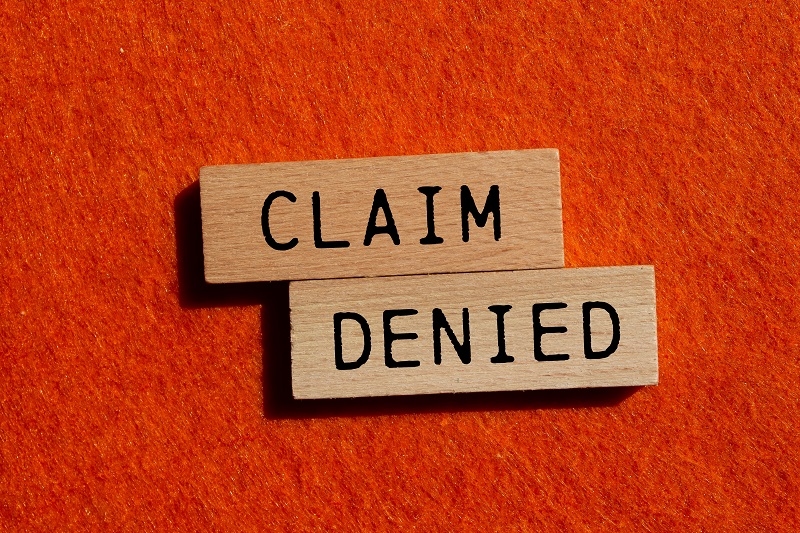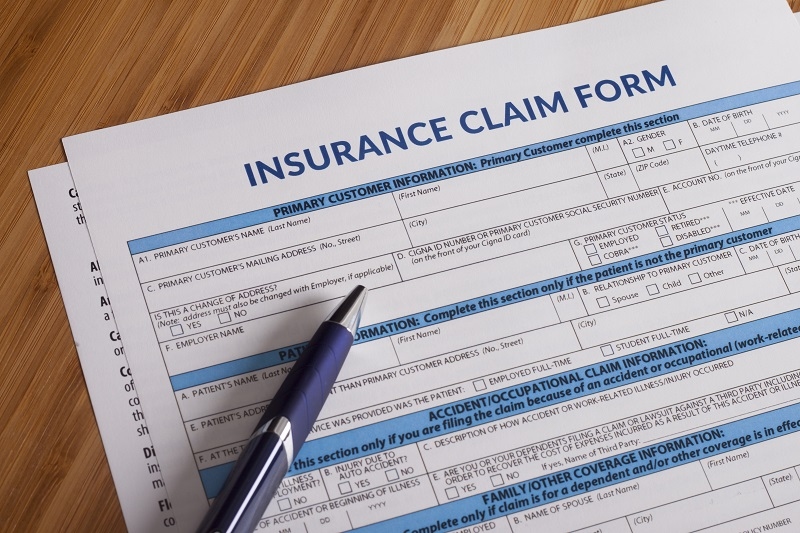Top Insurance Claim Denial Reasons: Prevent and Appeal Them

Having an insurance claim should be a comforting experience. If your vehicle was wrecked, your health was in crisis, or your house was destroyed, insurance can help you recover your loss. But far too many policyholders are confronted with a frustrating roadblock: denied claims.
Knowledge of the most common causes of claim denial and how to sidestep or overcome them can save time, money, and frustration. This blog lists the most common causes of insurance claim denial under car, health, and homeowner insurance, and provides advice on how to improve your chances of a successful claim.
Why Insurance Claims Get Denied?
Insurance companies do not reject claims indiscriminately. Rejections are usually due to paper errors, missed deadlines, non-coverage, or breaches of contract. While there are rejections which are valid, there are also some which can be disputed or avoided by being well prepared and knowledgeable.
Most Frequent Causes for Claim Denials Auto Insurance
Motor vehicle insurance claims are typically denied, either due to documentation issues, policy wording misinterpretation, or violation of the traffic code.
The following are some major reasons for auto insurance claim rejection:
- Policy Lapses: If your policy had lapsed at the time of the accident, your claim will be outrightly rejected. Even a single-day lapse can render your policy invalid.
- Unlisted Drivers: If the accident driver is not on your policy, the insurance can be declined by the insurer.
- Excluded Uses: Driving a personal car for business use, like ridesharing or deliveries, is excluded unless you have purchased the approved rider.
- Late Reporting: Waiting too long to report an accident gives the insurer grounds to reject your claim.
Auto Insurance: How to Avoid Claim Denial Reasons?
- Keep your policy and pay your premiums on a regular basis.
- Always ensure regular drivers on your policy.
- Inform your insurance company if you utilize your car for commercial use.
- Report accidents at the earliest, preferably within 24 hours.
Claim Denial Reasons Health Insurance
It is easy to become confused working through health insurance claims, and it is quite frequent for a service you thought was covered to be denied. Understanding frequent claim denial reasons can help you avoid anxiety.
Common denial reasons are:
- Out-of-Network Providers: If you are treated by an out-of-network provider, your insurer will not pay.
- Preauthorization Deficiency: Preauthorization is necessary for the majority of procedures. Skipping this process usually results in denial.
- Misbilled Codes: Even minor mistakes in medical billing codes lead to automatic rejection.
- Services Not Deemed "Medically Necessary": They can refuse services they deem experimental or not needed.
Avoiding Reasons for Claim Denial: Health Insurance Tips
- Choose in-network doctors and hospitals.
- Ensure preauthorization is finished prior to significant procedures.
- Cross-check billing codes with the provider's office.
- Work together with your doctor to document the treatment requirements.
Most Frequent Reasons of Denial: Home Insurance
When tragedy strikes your family, having a claim denied is devastating. The majority of claim denial reasons home insurance policyholders undergo are a result of misinterpretation of what is covered.
Typical denial grounds are:
- Poor Maintenance or Neglect: If your property has been damaged due to poor maintenance (like a clogged drainpipe you never cleared) or wear and tear, your claim will be denied.
- Excluded Perils: Most homeowner policies exclude accidents like floods, earthquakes, or mold unless you've bought special coverage.
- Late Filing: Waiting too long to file a claim can lead to automatic denial.
- Lack of Documentation: Not providing enough evidence (receipts, pictures, repair estimates) can void your claim.
Tips to Avoid Reasons for Home Insurance Denials
- Keep the house maintained to prevent damage.
- Prepare a review of your claim denial reasons and policy exclusions, and add endorsements if necessary.
- File claims promptly—don't wait weeks after the incident.
- Document everything thoroughly and keep copies.
Understanding Policy Exclusions
One of the main causes of denied claims is in claim denial reasons policy exclusions—the fine print that describes what your policy won't cover. Each type of insurance (auto, health, home) has its own exclusions.
Examples:
- Auto Insurance: Exclusion of intentional damage, racing, or driving while intoxicated.
- Health Insurance: Experimental treatments, elective treatments, or cosmetic surgery can be excluded.
- Home Insurance: Pest infestation, flooding, and foundation issues are common exclusions.
Avoid Claim Denial Reasons Tips: Policy Exclusions
- Carefully read your policy word for word, especially the exclusions part.
- Have your agent define unclear words.
- Consider adding extra protection (e.g., flood coverage, riders for valuable items).
- Keep a record of all correspondence with your insurer.

How to Appeal a Denied Insurance Claim?
Even if your claim is rejected, you are not yet out of luck. Most insurance providers allow you to appeal, especially if the rejection was on the grounds of insufficient data or poor judgment.
Procedural Steps in Appeals of Denied Claims
- Read the Denial Letter Carefully: It will inform you why you are being denied and your right to appeal.
- Collect Documents: Collect all supporting documents, bills, receipts, statements, photos, and prior authorizations.
- Write an Appeal Letter: Outline how you feel the claim should be awarded and provide evidence.
- File within the Deadline: Appeals generally have fixed deadlines (30-60 days), so be quick.
- Follow Up Periodically: Call your insurance company to ensure they've received your appeal and inquire about the status.
For health insurance, you might be eligible for an external review—an outside review of your case independent of the0 health insurance company.
Preventing Claim Denials: General Tips
Regardless of the kind of insurance, there are some general tips for avoiding claim denial reasons:
- Know Your Policy: Read and review your policy each year to stay up to date.
- Maintain Accurate Information: Make sure your insurer has your correct contact information, listed beneficiaries, and up-to-date vehicle or home information.
- Maintain Records: Maintain a record of receipts, policy documents, and correspondence.
- Act Now: Don't wait when reporting an accident or filing forms.
- Ask Questions: If you have a question about a term or coverage, ask your agent or insurer.
When to Seek Legal or Professional Help
In some cases, especially in complex or substantial claims, it's recommended to hire professional aid:
- Public Adjusters: In property insurance claims, they represent you in negotiating with the insurer.
- Insurance Lawyers: If you feel that there is bad faith or an unwarranted denial, a lawyer can assist you in taking legal action.
- Patient Advocates: For medical insurance, these professionals can guide you through the appeals process and negotiate with healthcare providers.
Denials in Real-Life Situations
Here are some real-world examples of claim denials:
Auto Insurance
Jake's vehicle was stolen, but his claim was denied because his policy was not comprehensive. He assumed theft was included—but learned too late it wasn't.
Takeaway: Don't assume coverage. Know what's covered and what isn't.
Health Insurance
Maria had the operation, but failed to get preapproval. Her $10,000 bill was declined since her insurance firm never preapproved the procedure.
Key takeaway: Always confirm preapprovals, especially for large treatments.
Home Insurance
Karen's basement was flooded by a storm. Her claim was rejected since her policy did not include floods.
Key Takeaway: Be mindful of the reasons for claim denial and policy exclusions, and add supplemental protection when necessary.
Final Thoughts
Denials of claims are never a barrel of laughter, but they are not game over, either. Knowing the reasons for claim denials most frequently affecting auto, health, and homeowner insurance enables you to avoid rejections beforehand—or appeal them and win. Education is the best defense. Know your policy, keep good records, and ask questions.
These are the keys for you to avoid the most common pitfalls and have your insurance protect you when you need it most. Remain proactive, verify those coverage limits again, and reply quickly to your insurer's requests. Taking these steps will enhance your claim and increase the likelihood of a successful claim outcome.
This content was created by AI

